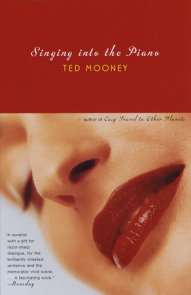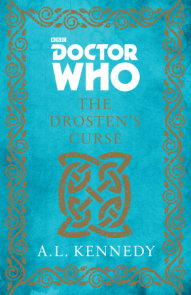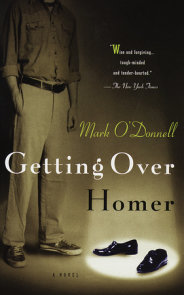READERS GUIDE
The introduction, discussion questions, and suggested further reading that follow are designed to enhance your group’s discussion of Where the Money Went, Kevin Canty’s stunning collection of short stories.Introduction
Kevin Canty is a master of the short story whose work has been compared to that of Flannery O’Connor and Raymond Carver. In Where the Money Went, he surprises us with stories about love and the desertion of love, all written from a man’s point of view. Rarely is a man so revealing.A narrator struggles with his abiding loyalty to his ex-wife, even when he finds love with another woman. A newly divorced man learns more than he wants to know about his friends’ long-term marriages. In these nine stories, which incisively touch on the complex nature of love, we find men as fathers, as husbands, and as lovers, trying their best in a world that stubbornly refuses to make sense. Canty, whose writing has been praised as “smart, gritty, unsentimental” (New York Times), “lovely and unforgiving” (Boston Globe), and “enchanting and painful” (USA Today), powerfully conveys both the bitterness that can afflict romantic relationships, and the moments of humor and tenderness that cut through it.
Questions and Topics for Discussion
1. After reading Where the Money Went did Canty’s stories challenge you to look at morality in relationships differently?
2. Belongingness is a theme throughout the book–the notion that people do not have a place to return–a place where they can be safe, where things are familiar and where they become easier with time. What does this say about the characters’ situations and predicaments? Is there any hope of happiness in relationships? If not, where do these people go wrong?
3. Canty shows that the characters can see the peril down the road. Why do you think people ignore such signs? Why do they persist to engage in doomed relationships, like affairs and tenuous marriages?
4. Canty shows that the characters can see the peril down the road. Why do you think people ignore such signs? Why do they persist to engage in doomed relationships, like affairs and tenuous marriages?
5. In the story, “Where the Money Went,” Canty begins with the end. The divorce and the only certainty of it all: the money. The order of the stories seems to suggest that Canty wants us to see that this is where the rest of the book is heading. No illusions. Every story from here on out will end in the same way. Does he accomplish this? And if so, why do you think he approaches the book this way?
6. In “The Emperor of Ice Cream,” why does Lander allow himself to be jealous of the attention that Soleil pays to Tim? What does this say about the propensity of male sexuality? Its persistence? Male sexual frailty?
7. In “In the Burn,” the narrator describes the movement of the tectonic plates beneath Richard and Nancy. What does this movement foreshadow? Metaphorically, what does fire represent in Richard’s life?
8. In “They Were Expendable,” Canty uses a confessional approach–the narrator is confessing to his late wife that he has found another woman. The narrator says, “Life loves life.” What does this mean?
9. In “No Place in This World for You,” Walter seems to be constantly afraid, worried, and nervous. He bites. Why does he bite? What triggers his biting? Walter’s father seems helpless against his distant and aloof wife, and powerless even in his job. What does the moment with Sally Drake–including the moment when Walter bites her–say about his predicament? He may not be able to protect Walter, but can he even protect himself?
10. Explain the significance of the title “Sleeping Beauty.”
11. In “Birthday Girl,” what significance is there to the story being set in a snowed-in hotel that features mermaids in a giant pool that can be watched from the hotel bar? What greater meaning can be found in this incongruent environment?
12. Like “They Were Expendable,” in “The Boreal Forest,” the narrator addresses the audience directly. Why does he do this?
13. In “Burning Bridges, Breaking Glass,” Canty writes of Rossbach, “He understood that he himself represented an outbreak of the unreal, the chaotic, the dream life intruding upon the daylit one…He knew he should just go, he should leave her alone. Rossbach was chaos itself. He was violence upon her.” Why does Rossbach pursue Karen? Is he a malevolent character?
(For a complete list of available reading group guides, and to sign up for the Reading Group Center enewsletter, visit www.readinggroupcenter.com)






















